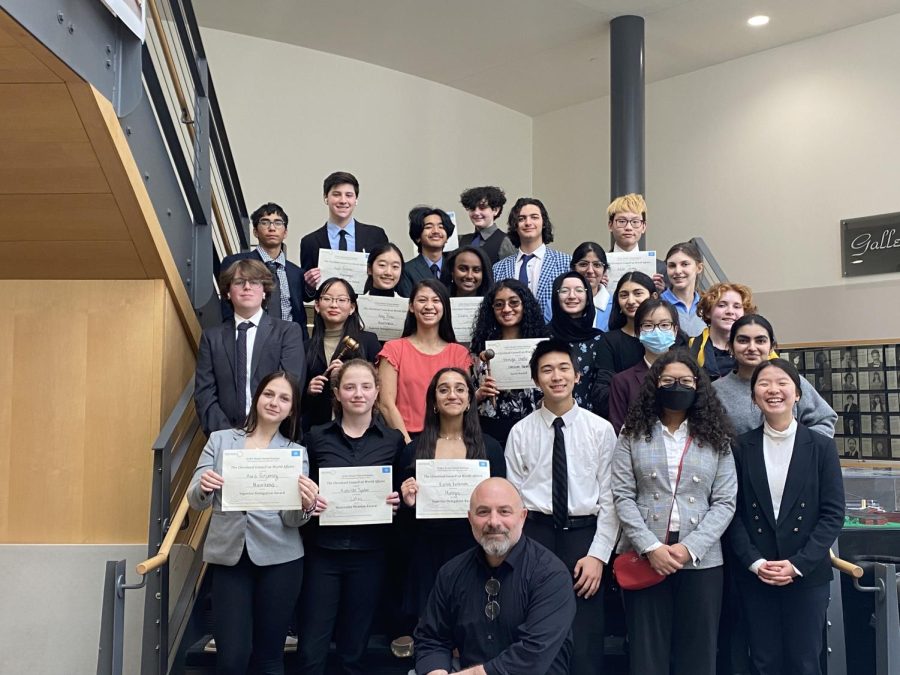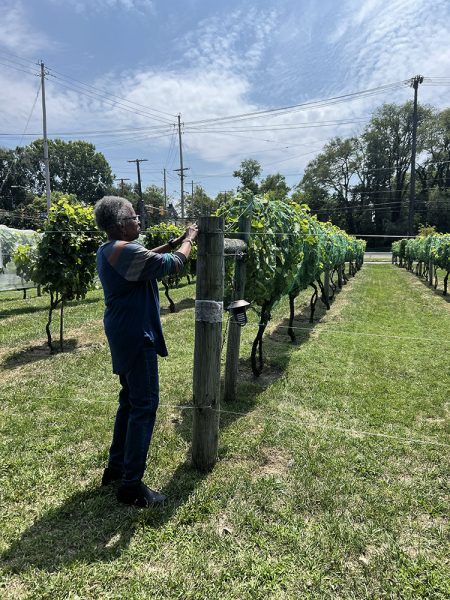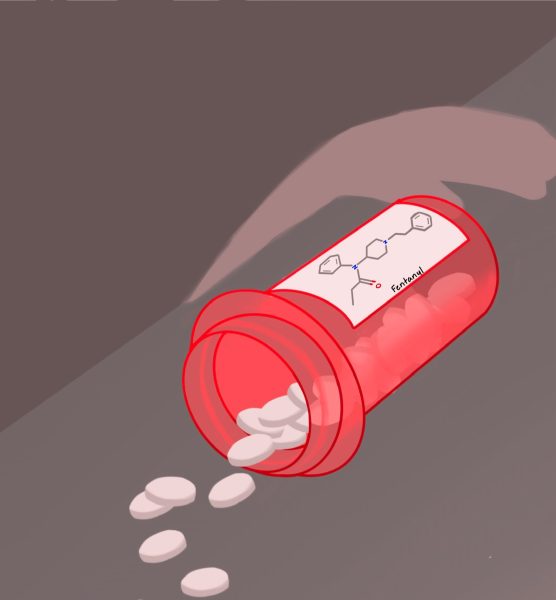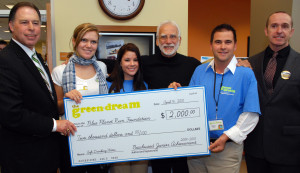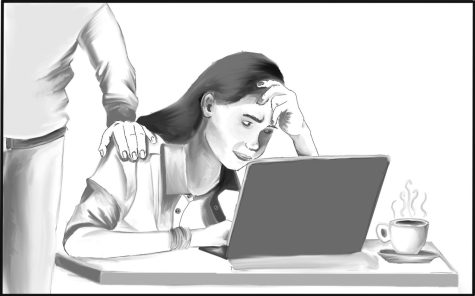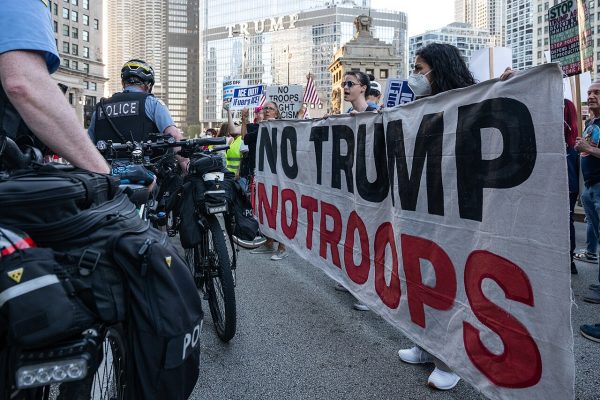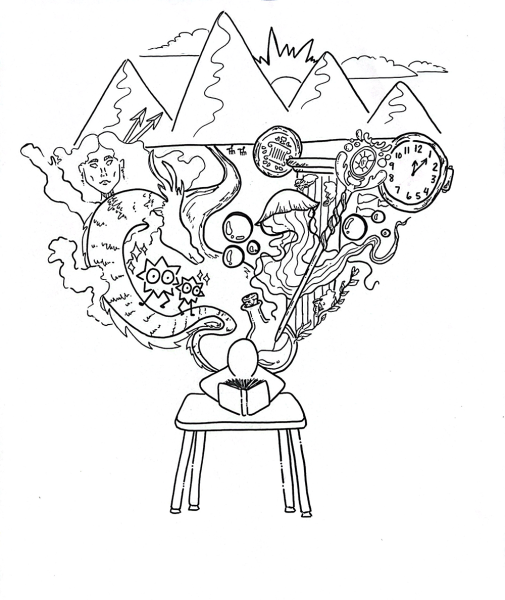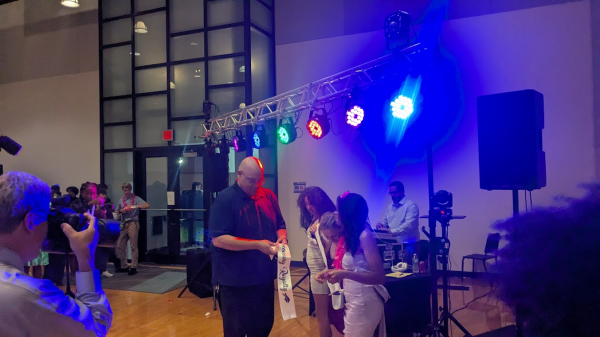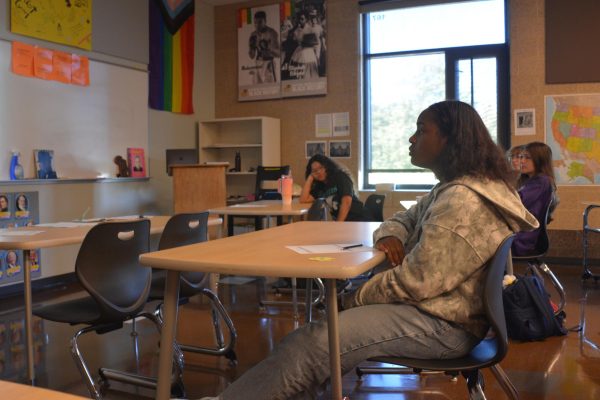Model UN Wins Best Delegation at Case Western Conferences
Beachwood’s Model UN members show off their awards after the fall CCWA conference.
The BHS Model United Nations club has made quite the successful comeback from COVID this year.
The club won best large delegation at the two Cleveland Council for World Affairs (CCWA) conferences at Case Western as well as individual awards at the Columbia Model United Nations Conference and Exposition (CMUNCE) at Columbia University in New York City.
Executive Board Member Nishan Shrestha believes the club’s rigorous preparation has helped them find success this year.
“We have practices twice a week,” he said, “We try to give advice to the underclassmen after each practice so that even the people who haven’t done this before are well prepared.”
At the fall CCWA conference Ezrin Salzman and Lyndia Zheng won superior delegation; Nishan Shreshtha and Noah Beilstein won superior delegation; Amy Zhou and Siya Gulia won superior delegation as well as a position paper award; Maria Zarjetskiy and Srishti Ithychanda won excellent delegation; Cordelia Ames, Anah Khan and Karina Krishnan won gavel awards; and Radha Pareek and Blane Ehasz won honorable mentions.
Four Beachwood students won individual awards at the CMUNCE conference on Jan. 12-15: Probir Mukherjee, Nishan Shrestha and Amy Zhou won honorable mentions, and Julian Landes won a verbal commendation.
At the spring CCWA conference on March 8 and 9, Amy Zhou and Maria Zarjetskiy won superior delegation; Noah Beilstein and Karina Krishnan won superior delegation; Shreya Chellu and Lyndia Zheng won gavel awards; Ezrin Saltzman and Kevin Zhang won honorable mention; and Eliana Worku and Mathilde Spaller won honorable mention.
Shreshtha explained that CMUNCE is a tough conference.
“[I was assigned to] quite a challenging committee,” Shreshtha said. “I was happy to have won something.”
MUN simulates the experience of being a United Nations delegate. Students explore and research countries, as well as improve problem-solving and public speaking skills. At the beginning of conferences, members are assigned to a particular committee dealing with a wide range of issues. Once placed in a committee they are given a position that they are to research and then defend.
For example, they could be tasked with an issue like the Nigerian-Biafran conflict. Students are assigned to represent a country, and so they have to research both the country and the issues. Participants must submit position papers about their assigned issue prior to conferences in order to be eligible for awards.
After being placed into a committee, members must work together with other teams to promote their stance. Committees are generally given time for moderated and unmoderated caucuses.
The moderated caucuses are divided into speaking times; each delegate has to give a speech during their assigned time. The unmoderated caucuses allow free conversation between delegates and other members; during this time they can work together on their resolution papers. Later in the committee, the resolution papers are presented and then voted on.
Sophomore Radha Pareek has enjoyed meeting students with similar interests.
“I’ve been doing MUN since sixth grade,” she said. “I think it’s been a really immersive experience that’s given me many opportunities to interact and engage with people who have similar goals of going into the field of foreign affairs.”
The Model UN Exec Board is a council of five, including seniors Julian Landes and Ben Lawrence as well as juniors Probir Mukherjee, Cordelia Ames and Shrestha.
The executive board plans practices and selects participants for out-of-state trips based on who they feel has the strongest public speaking and problem solving skills.
Two of the five executive board positions will become open this spring due to senior members graduating. Club members who apply are elected to the board.
“[Candidates for executive board should be] able to think quickly on [their] feet, adapt to changing situations, and be able to honestly read a room and judge dynamics and make decisions,” Shrestha said.
Some may think Model UN is a cutthroat academic program, but Shrestha sees it differently.
“[It is] very friendly and very welcoming to new people,” he said.
Junior Siya Gulia has also found the program to be welcoming.
“[I was able to] meet a bunch of new people that I probably never would’ve talked to,” she said.
Social studies teacher Dominic Velotta enjoys serving as the team’s adviser.
“They’re a really good bunch of kids,” he said. “They work hard. Their academics are important and they’re really a strong team.”
The club leaves this Friday to compete at the Michigan State Model United Nations Conference in East Lansing.



